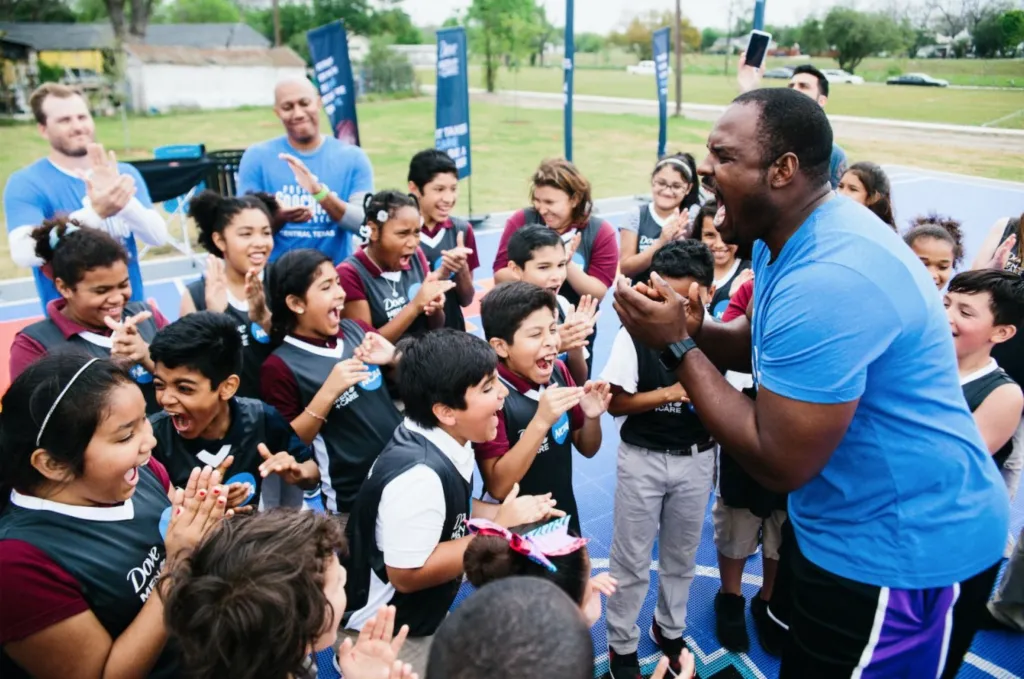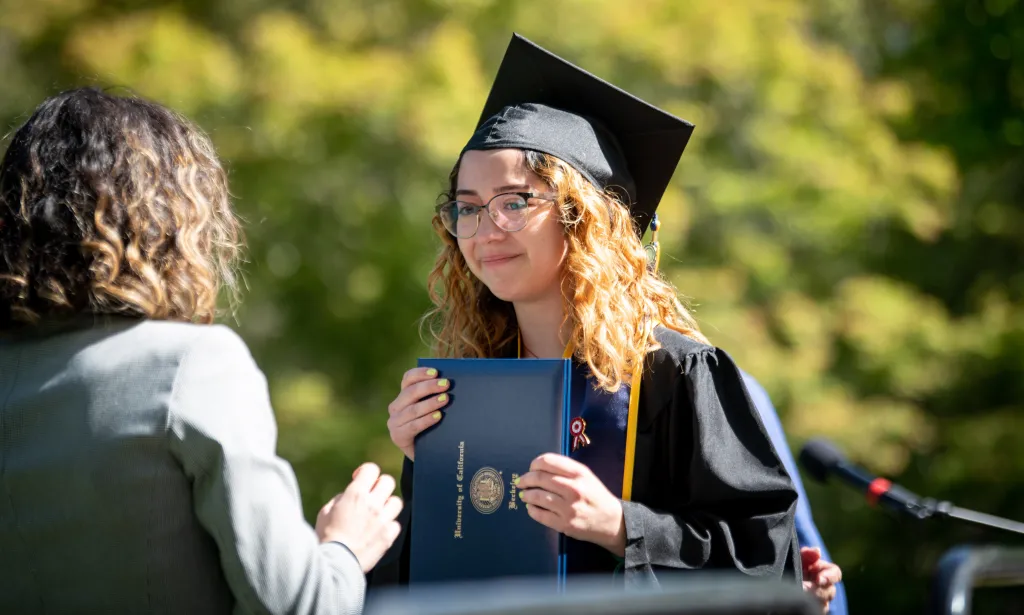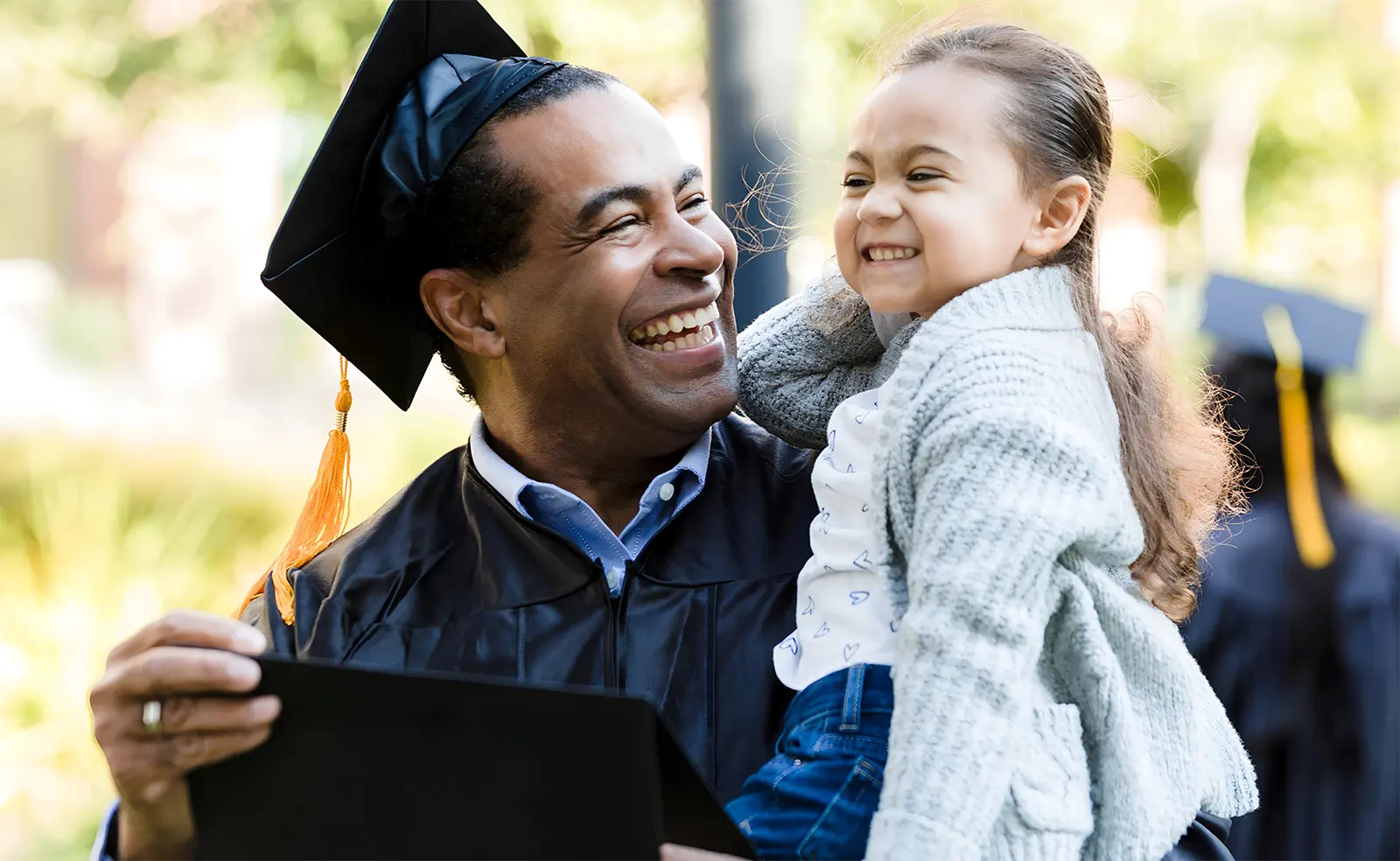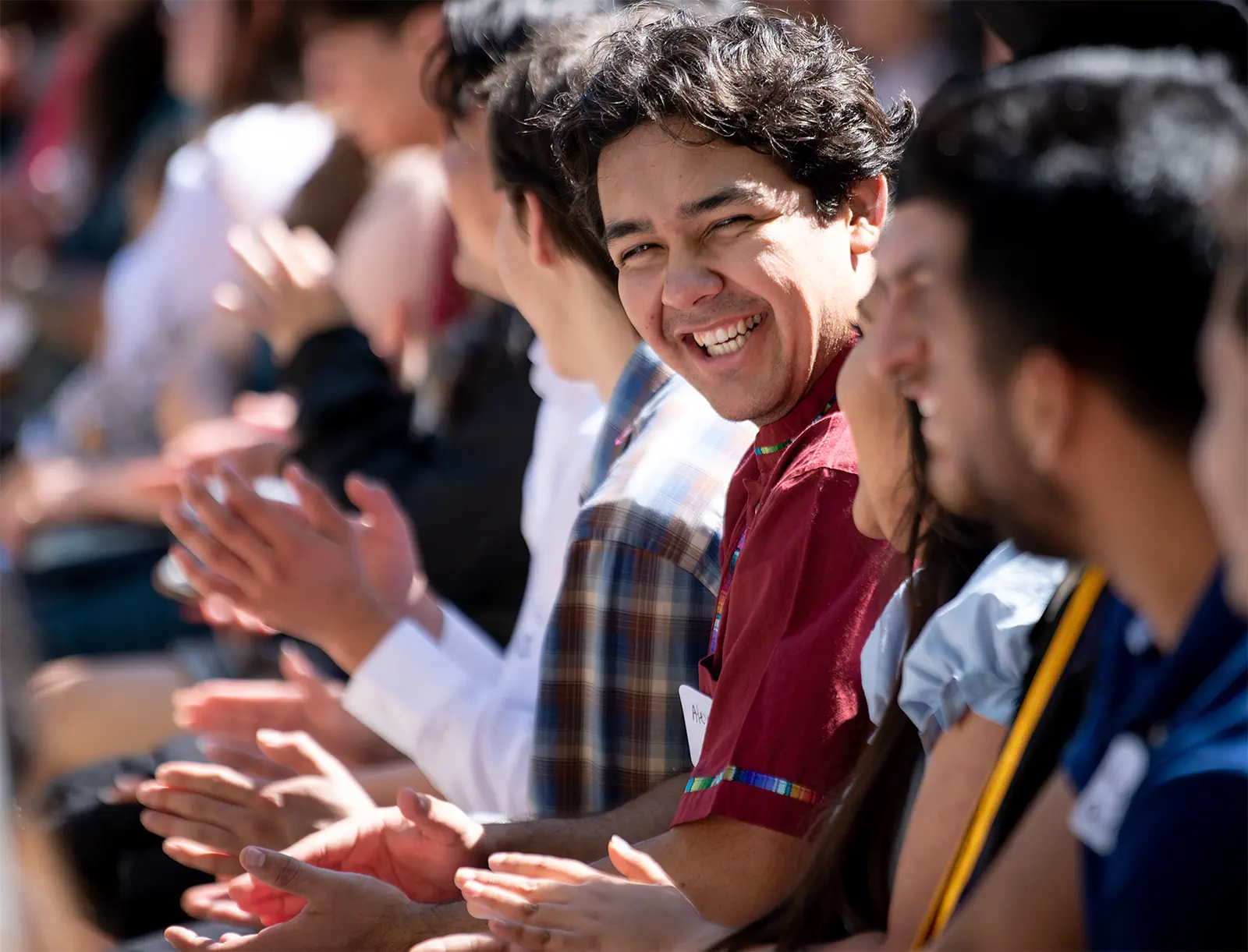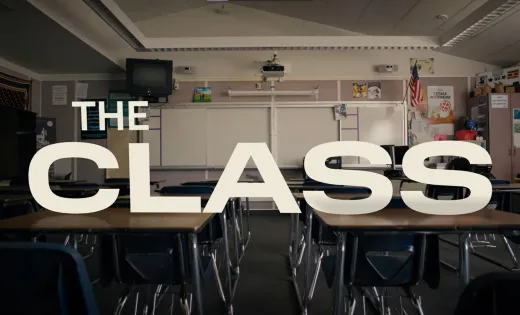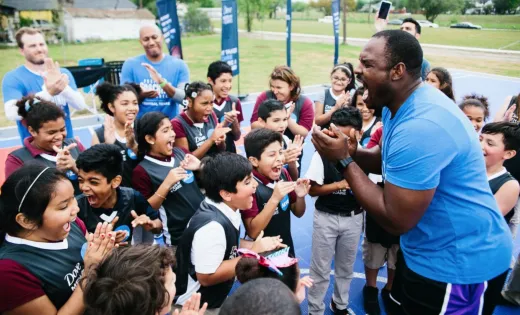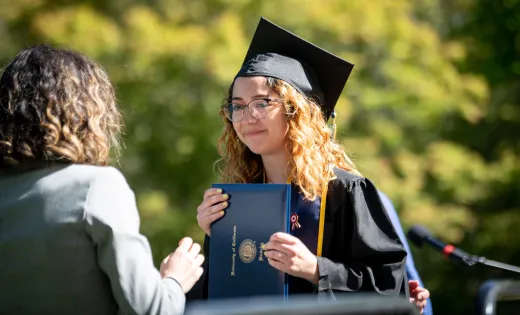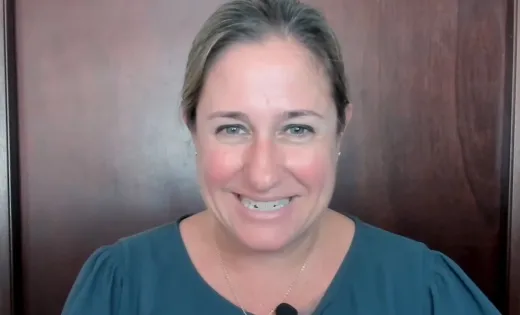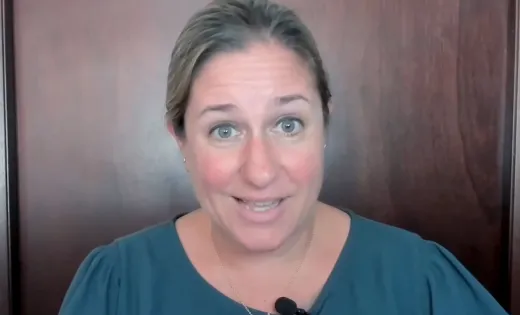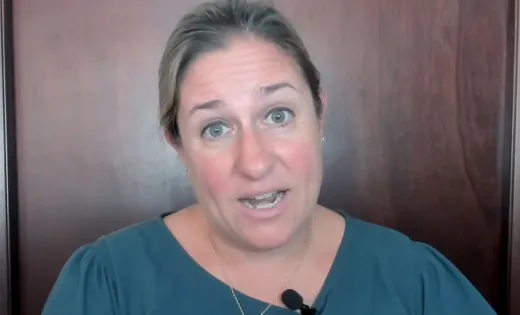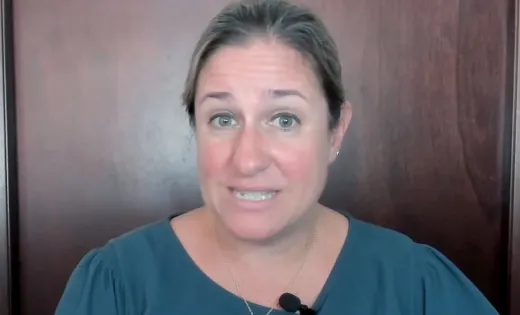 Photo Courtesy of The Class Docuseries
Photo Courtesy of The Class Docuseries
Helping All Students Realize the Promise of Higher Education
In today’s economy, people with a bachelor’s degree are more likely to find higher-paying jobs, better health, and a better quality of life, compared to those with a high school or associate degree. But in California and nationwide, Black, Latino, and Native American students and those from low-income families are much less likely than their peers to attain a four-year degree.
We are working with partners to ensure that more students can access the resources and supports they need to obtain a bachelor’s degree.
The Current Landscape
Research shows the need to reduce barriers to a bachelor’s degree in California.
A study commissioned by the Haas, Jr. Fund at the end of 2023 affirms the benefits of earning a bachelor’s degree but also highlights the need for greater access to financial aid for low-income students.
College Pays Off
A college graduate in California with a bachelor’s degree earns roughly twice as much money and accumulates significantly more wealth than a peer with only a high school degree.
Cost is Still a Barrier for Many
Currently, total student costs can be reduced by at least half across California’s public higher education systems through various financial aid options. But more financial aid is needed to ensure that cost is not a barrier to a bachelor’s degree for lower-income students and their families.
Students are not getting the support they need to complete their degrees.
Wide disparities exist for Black, Latino, and Native American students when it comes to college access and degree completion in California. Too many students in community colleges are also not transferring to four-year institutions and completing their studies.
Graduation Disparities Persist
The percentage of Black, Latino, and Native American students completing a bachelor’s degree and graduating from a four-year college is lower than it is for white and Asian students.
The Transfer Process is Broken
Only 10% of part-time and 14% of full-time community college students transfer and obtain a bachelor’s degree six years after initial enrollment.
How We’ll Get There
Dismantling Barriers to a Bachelor's Degree
We are working with partners to tackle barriers that prevent students of color, low-income students, and first-generation students in California from attaining a four-year degree. Our primary focus: creating an accessible, affordable, and easy-to-navigate pathway to a bachelor’s degree for more students. Together, we can help more students and their families realize the lifelong benefits of higher education. Here are three priorities we’re focusing on:
-
Advancing policies and programs that expand access to financial aid and that help students and families understand what is available to them.
-
Streamlining and improving the transfer process from California Community Colleges to four-year institutions where students can obtain a bachelor’s degree.
-
Scaling innovative programs and systems that help students navigate the enrollment and transfer processes and persist to degree completion.
Sharing What We’re Learning
In addition to this work, the Haas, Jr. Fund is working with partners to help show why it’s important to ensure that more underrepresented students obtain a bachelor’s degree, and how to make it happen.
Program Staff
 Read Monica’s Bio
Read Monica’s Bio
Monica Martinez Program Director, College Success
Monica leads the Fund’s strategies and partnerships to advance a level playing field in higher education and broaden access to a bachelor’s degree in California.
Explore our timeline of key milestones in College Success
- Visit Our Timeline
-
 2024Messaging Resources to Build Support for College Affordability in California
2024Messaging Resources to Build Support for College Affordability in California -
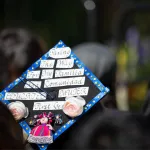 2024Research Reveals the Need to Reduce Barriers to a Bachelor’s Degree in California
2024Research Reveals the Need to Reduce Barriers to a Bachelor’s Degree in California -
 2023Welcoming our New Program Director for College Success
2023Welcoming our New Program Director for College Success -
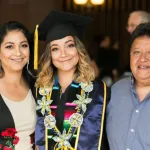 2022The California Campus Catalyst Fund Wraps Up
2022The California Campus Catalyst Fund Wraps Up -
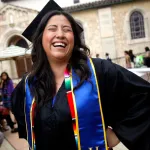 2020Leveling the Playing Field in Higher Education
2020Leveling the Playing Field in Higher Education -
 2019Expanding Equity Efforts at Cal
2019Expanding Equity Efforts at Cal -
 2017Welcoming Raquiba LaBrie
2017Welcoming Raquiba LaBrie -
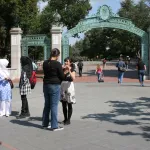 2015Building an inclusive university
2015Building an inclusive university -
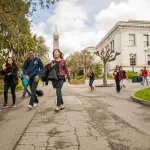 2010Funding equity and diversity for UC Berkeley
2010Funding equity and diversity for UC Berkeley -
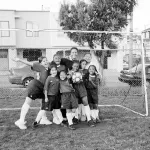 1999Helping all kids get in the game
1999Helping all kids get in the game
What it means to me to be the first member of my family to graduate high school and go to college is that I am finally fulfilling a generational wish that my [family] had. It is to show that... everything they put into me... is now going to be achieved.
Richard, college student in Walnut, California

